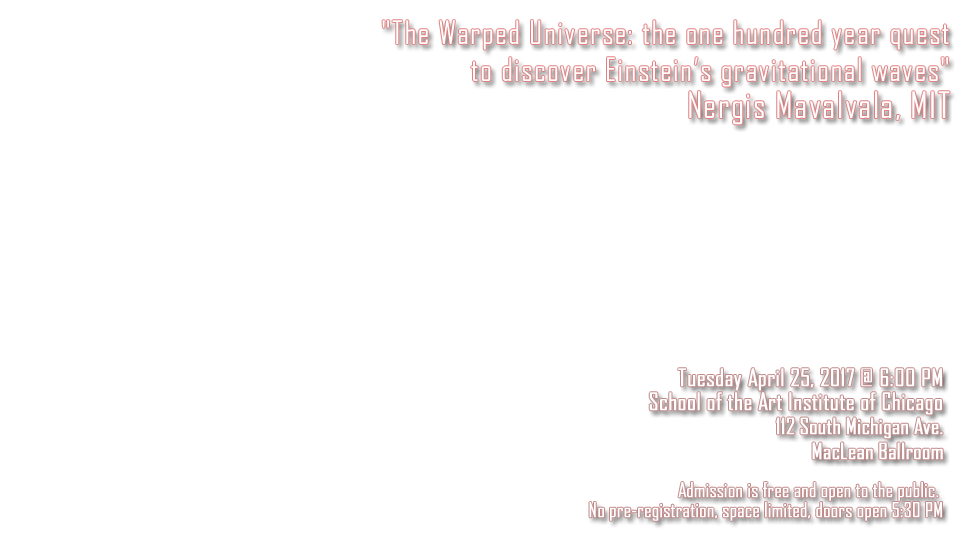2016-2017 Brinson Lecture: "The Warped Universe: the one hundred year quest to discover Einstein's gravitational waves"
Tuesday, April 25, 2017 @ 6:00 PM | School of the Art Institute of Chicago, 112 South Michigan Ave., MacLean Ballroom
In 2016, scientists announced the first ever detection of gravitational waves from colliding black holes, launching a new era of gravitational wave astrophysics. Gravitational waves were predicted by Einstein hundred years earlier. I will describe the scientific and human story behind these discoveries that provide a window into some of the most violent and warped events in the Universe.
Nergis Mavalvala, 2016-2017 Brinson Lecturer
Nergis Mavalvala is the Marble Professor of Astrophysics at the Massachusetts Institute of Technology (MIT) and a 2010 recipient of a MacArthur "genius" award. She is a physicist whose research connects the microscopic quantum world with some of the most powerful forces in the cosmos. She has worked on the detection of gravitational waves for decades, and is a longtime member of the scientific team that announced the first direct detection of gravitational waves from colliding black holes by the Laser Interferometer Gravitational-wave Observatory (LIGO). Mavalvala has also conducted pioneering experiments on generation and application of squeezed states of light, and on laser cooling and trapping of macroscopic objects to enable observation of quantum phenomena in human-scale systems. Mavalvala received a B.A. from Wellesley College and a Ph.D. from MIT. She was a postdoctoral fellow and research scientist at the California Institute of Technology before joining the Physics faculty at MIT in 2002.
Admission is free and open to the public. No pre-registration, space limited. Doors open 5:30 PM.
This event is co-sponsored by the University of Chicago and the School of the Art Institute of Chicago
This event is made possible by a generous gift from the Brinson Foundation to the University of Chicago.
This event is made possible by a generous gift from the Brinson Foundation to the University of Chicago.







